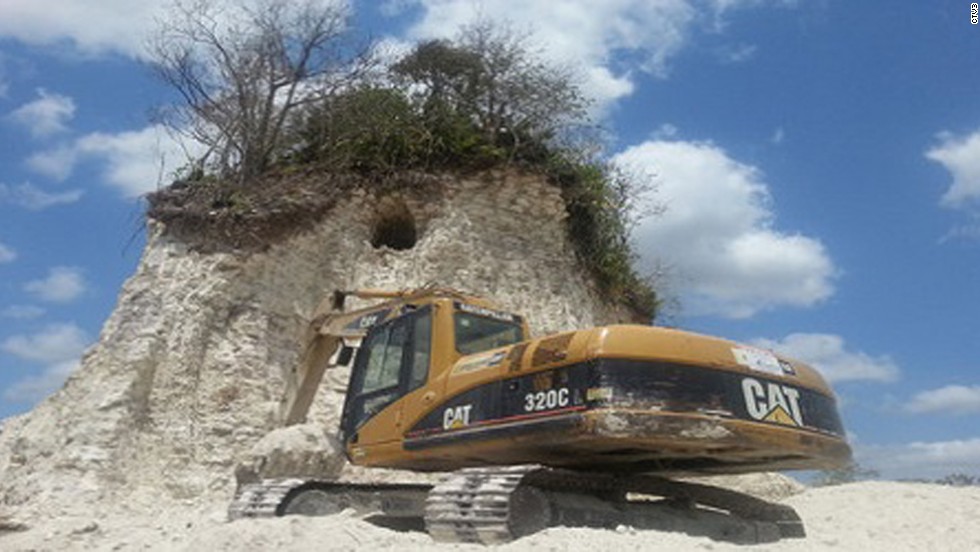Ancient Mayan pyramid destroyed in Belize by the construction company
A construction company in Belize destroyed one of the oldest and most famous Mayan pyramids while digging for crushed rock for a road they were constructing.
Authorities reported that the company was carrying out the work with bulldozers and backhoes, chipping away at the pyramid’s sides until there was barely anything left.
The Belize Institute of Archaeology’s director, Jaime Awe, said the building had been discovered the previous week. The ceremonial center at the Nohmul complex is thought to be at least 2,300 years old, and it is considered the most significant historical site in northern Belize, near the Mexican border.



“It’s a feeling of Incredible disbelief because of the ignorance and the insensitivity … they were using this for road fill,” Awe told AP. “It’s like being punched in the stomach, it’s just so horrendous.”
Nohmul is located in the middle of a privately owned sugar cane field and its structures lacked the tell-tale signs of a restored cultural site – like the evenly trimmed stone borders at the sides.
Yet, Awe said this could not possibly have been an explanation for how the workers had managed not to take note of what they were doing.
The pyramid is 100 feet (30 meters) tall, while the land around it is flat, so making that kind of mistake is difficult to imagine.
“These guys knew that this was an ancient structure. It’s just bloody laziness”, Awe continued. “Just to realize that the ancient Maya acquired all this building material to erect these buildings, using nothing more than stone tools and quarried the stone, and carried this material on their heads, using tump lines,” he said.
“To think that today we have modern equipment, that you can go and excavate in a quarry anywhere, but that this company would completely disregard that and completely destroyed this building.
Why can’t these people just go and quarry somewhere that has no cultural significance? It’s mind-boggling.”
An investigation is underway by Belizean police, with criminal charges looking like a possibility. Although the Nohmul complex is situated on private land, the law says that any ruins or monuments of pre-Hispanic origin are exempt from it and are under government protection.
A community organization calling itself the Citizens Organized for Liberty through Action has condemned the demolition of the site as “an obscene example of disrespect for the environment and history.”
Hundreds of Mayan ruins remain in Belize, which is largely covered with jungles and counts around 350,000 people among its population. Although this is not the first case that such lack of regard was employed in Belize, Nohmul is among the largest pyramids ruined by such activities.

Many scientists spoke out against what happened. Arlen Chase, chairman of the Department of Anthropology at the University of Central Florida, told AP that “Archaeologists are disturbed when such things occur, but there is only a very limited infrastructure in Belize that can be applied to cultural heritage management.”
The ’70s and 80’s saw much exploration take place around the Nohmul area, but it is important to understand that more knowledge could still be gained, as scientists say.
And such instances of lazy negligence and destruction of Mayan cultural heritage aren’t limited only to Belize. The remnants of the great Mayan nation are under threat in Mexico, Guatemala, and Honduras as well.
Francisco Estrada-Belli, a professor of anthropology at Tulane University, said “I don’t think I am exaggerating if I say that every day a Maya mound is being destroyed for construction in one of the countries where the Maya lived.”
